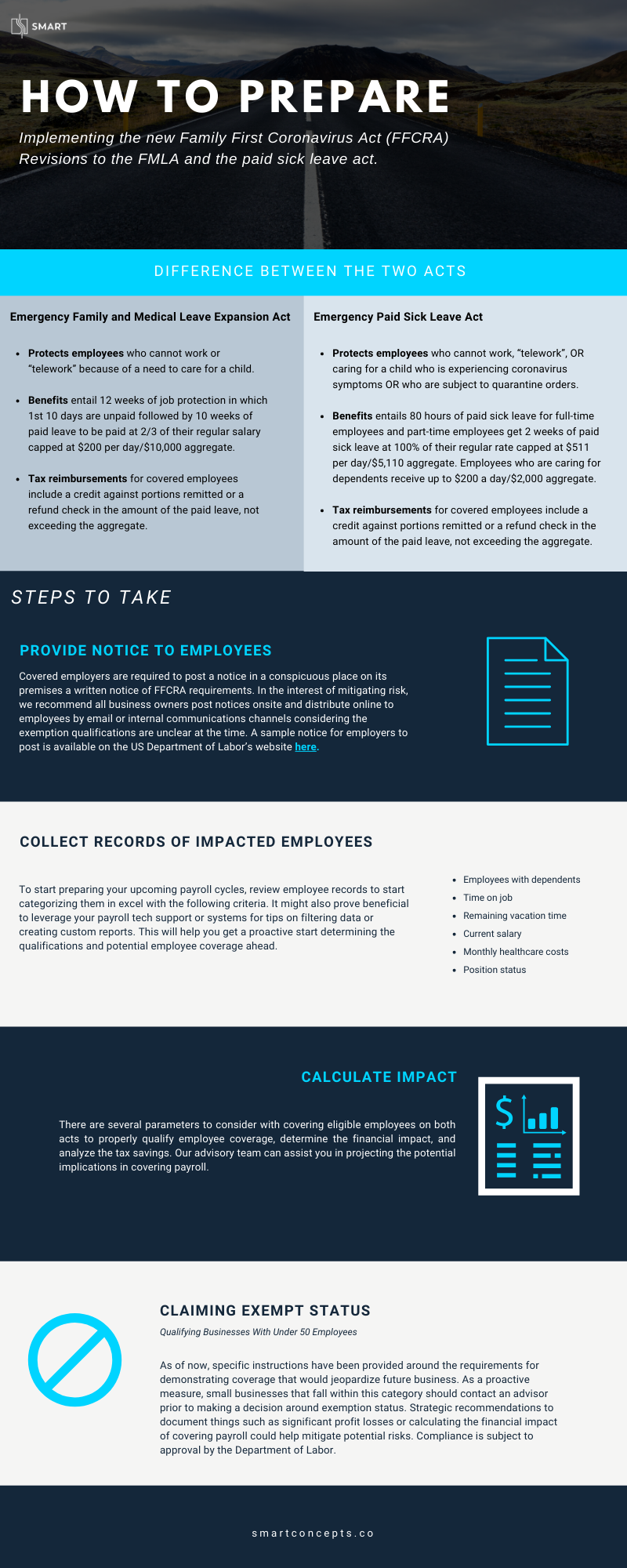COVID Business Impact: Understanding the Family First Coronavirus Act
These past few weeks have presented a storm of challenges that directly inform the future direction of small businesses.
- New bills require covered employers to offer increased benefits
- Benefits are designed to be reimbursed via tax credits
- Specificities are still pending from government
- Actions required for all businesses
Overview of the Family First Coronavirus Act
These past few weeks have presented a storm of challenges that directly inform the future direction of small businesses. Admittedly complex to translate, the jury still stands on how businesses should implement changes into their payroll systems. In the meantime, we’ve put our heads together to provide some resources on navigating the days ahead.
Important to note, the policy implemented by the Family First Coronavirus Act (FFCRA) entails two separate laws: One that expands the Family Medical Leave Act (FMLA) to in crisis as the Emergency Family and Medical Leave Expansion Act and a new paid sick leave benefit called the Emergency Paid Sick Leave Act.
Here's What to Know— and What We Know So Far:
Effective April 2, 2020, the new emergency act requires legislation to provide more than $100 billion in funding to supplement expanded unemployment benefits, paid sick leave, and assistance for families. Essentially, these changes allow for additional job protection during COVID-19 while subsidizing businesses with future tax reimbursements. The policy provisions specifically impact two primary groups of employers: Companies with 500 or fewer employees and an exemption clause for companies with 50 or fewer employees.
The bill authorizes the Secretary of Department of Labor to exclude certain healthcare providers, emergency responders, and small businesses with under 50 employees in which this policy would “jeopardize the future viability as a going concern.” Please be advised, the details or instructions outlining business requirements to meet exemptions status have yet to be released. In the interim, read here for additional information on tax credits.

